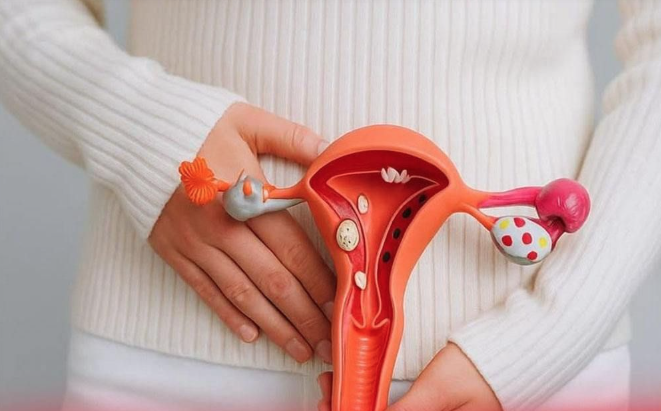When discussing women’s health, the focus often centers on personal actions like maintaining regular checkups, screenings, healthy eating, and physical activity. However, a woman’s health is profoundly influenced by her surroundings, particularly the daily habits of the partner she shares her life with.
In many relationships, husbands may not fully grasp how their lifestyle choices can subtly jeopardize their wives’ long-term well-being. Seemingly harmless routines, rooted in habit or convenience, can elevate the risk of serious health conditions that impact not only women but also their families.
Below are three common habits that some men practice without much consideration. If left unaddressed, these behaviors can erode trust in a marriage, compromise a woman’s health, and even heighten her risk of cervical and reproductive health challenges.
1. Smoking and Its Hidden Impact on the Household
The dangers of smoking are widely known, with connections to lung disease, heart conditions, and reduced life expectancy established for decades. Yet, some men continue this habit, often justifying it as a way to manage stress or limiting it to “only a couple of cigarettes” daily.
What’s often overlooked is the silent harm smoking inflicts on those sharing the same space. For wives living in the same home, secondhand smoke can be nearly as harmful as smoking itself.
When tobacco smoke lingers in a living room, car, or bedroom, it does more than cause temporary discomfort to the eyes or throat. Research highlights that secondhand smoke:
- Weakens the immune system, reducing the body’s ability to combat viruses, including those affecting reproductive health.
- Elevates the risk of respiratory conditions and chronic bronchitis in non-smokers.
- Increases the chances of heart disease, high blood pressure, and complications during pregnancy.
Moreover, secondhand smoke has been linked to cervical health concerns in women, particularly by impairing the body’s defenses against infections that harm cervical cells.
Every cigarette a husband smokes not only damages his own health but also quietly undermines his wife’s well-being. If love is about safeguarding those closest to you, quitting smoking—or at the very least, ensuring the household is free from exposure—should be a top priority for every devoted husband.
2. Neglecting Protection During Intimacy
For some men, using protection during intimacy may feel inconvenient or unnecessary. They might argue it diminishes enjoyment or disrupts the moment. However, the real issue at stake is not fleeting comfort—it’s their partner’s long-term health.
Condoms remain one of the most effective ways to guard against sexually transmitted infections (STIs), which can lead to significant complications in women’s reproductive health. Certain infections, like HPV, are strongly associated with cervical health issues if not addressed.
When a husband opts out of using protection, he’s making a decision that affects not only himself but also his wife. While hormonal contraceptives can prevent pregnancy, they offer no defense against infections. Studies also suggest that prolonged use of hormonal contraceptives, without additional protective measures, may slightly elevate risks for other health concerns, such as breast complications, depending on the duration and dosage.
A thriving marriage is built on mutual respect, open communication, and shared responsibility. This includes honoring a woman’s right to protect her body from avoidable risks. For husbands, dismissing protection is not only a selfish choice—it can have lasting health consequences.
3. Pressuring Intimacy During Menstruation
A less commonly discussed but surprisingly frequent issue is when men encourage intimacy during their wife’s menstrual cycle. Some women may feel hesitant to refuse, while others comply to avoid tension.
However, the body is particularly vulnerable during menstruation. The cervix is slightly more open as the uterine lining sheds, creating a pathway for bacteria and infections. Medical experts note that intimacy during this time can:
- Heighten the risk of pelvic infections.
- Cause gynecological inflammation that persists beyond the menstrual cycle.
- Contribute to long-term cervical or uterine issues if infections go untreated.
A woman’s decision to decline intimacy during this period should be met with unconditional respect. True care and love prioritize her comfort and health over temporary desires. A husband who pressures his wife during this time disregards her needs and risks her future well-being.
Why a Husband’s Habits Are Critical to Women’s Health
Many men assume that women’s health is solely their partner’s responsibility—that she should manage her screenings, diet, and self-care independently. Yet, a marriage is a partnership, and a wife’s health is closely tied to the choices her husband makes daily.
By eliminating smoking, embracing protective measures during intimacy, and respecting boundaries during menstruation, husbands can significantly reduce their wives’ risks of cervical health challenges. Beyond that, these actions demonstrate care, respect, and a commitment to being a true partner in protecting the family’s future.
Consider this: a husband’s habits extend beyond his wife, influencing the entire family. A mother’s health affects her children, her home, and her ability to live fully in her later years. By addressing selfish behaviors, men not only protect their wives but also nurture a healthier, stronger family for generations to come.
Practical Steps for Husbands to Make a Difference
For men seeking to improve but unsure where to begin, here are actionable steps that can create meaningful change:
- Eliminate smoking or keep it away from the home and family. Better yet, seek professional support to quit entirely.
- Prioritize protection during intimacy. Listen to your wife’s concerns and make health a shared goal.
- Show patience during menstruation. Use this time to connect emotionally and provide the rest and respect your wife deserves.
- Support regular health checkups. Accompany her to appointments or show care by encouraging her screenings and wellness visits.
These changes not only enhance a woman’s physical health but also foster trust and deepen the bond within a marriage.
Building a Healthier Future Together
A strong marriage goes beyond shared meals, homes, or finances—it’s about safeguarding each other in every way. When husbands hold onto habits that harm, they not only increase their wives’ risk of cervical health issues but also weaken the trust and connection that form the heart of a relationship.
True love shines through actions, not merely words. A man who values his wife will choose habits that honor and protect her, ensuring her health and happiness. By doing so, he strengthens not only her well-being but also the foundation of a thriving, healthy family for years to come.




